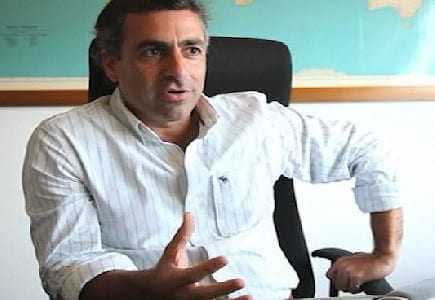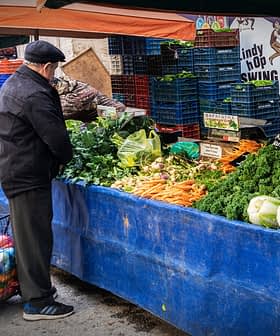
Spain’s Acesur Group is among the world’s top five of olive oil companies, exporting to 80 countries and owner of popular Spanish brands Coosur and La Española.
In an interview with Spain’s El Economista, its CEO, Gonzalo Guillén, spoke frankly of Spain’s olive oil image problem and his company’s plans for international expansion.
Spanish Market
Acesur’s consolidated revenue rose to more than 400 million euros ($537 million) in 2010. A decade ago, the Spanish market represented 85 percent of its business, now it’s less than half. Last year was the first in which exports and packaging outside Spain accounted for the majority of its revenue.
The volume of olive oil sales is declining in general in Spain, not just the price, which suggests that people are now watching their spending more closely, according to Guillén. Acesur is having to do “all kinds of juggling” yet in the Spanish market there’s not much room to move, “due to competition with other name brands and the generic lines.”
The latter have soared in popularity in the last decade, partly thanks to “very aggressive positioning” and now account for more than 65 percent of olive oil sales in Spain, he said.
Given the domestic situation, Acesur is planning for increased diversification, particularly by expanding globally and increasing exports. “Growth in Spain is complicated, it’s always at the cost of others,” he said. “For that reason, we are focusing on the international market, where growth is not at someone else’s cost, or at least not someone from within Spain.”
“One of the biggest problems we have in this sector, apart from low retail prices, is excess production capacity. For example, just with our own packaging plants we could alone cover the entire Spanish market. That makes investment in new plants problematic and is why we focus on modernizing and adapting existing ones.”
Acesur’s products Coosur and La Española are Spain’s market leaders in 1 liter EVOO sales. It also hold second place for refined oils and sunflower oil, the later with Coosol, and has added new, related products, such as vinegar and sauces, to create a closer relationship with customers and more symbiosis, said Guillén.
Generic brands
About a third of the volume of oil packaged by Acesur is destined for resale as a generic brand. Guillén contrasts this with the fact that in Spain the market is two-thirds generic brands and the rest name brands.
“We could expand a lot with generic brands but we don’t want to grow at any prices. We want to expand in that sector in parallel with the expansion of our own lines.”
Strengthening its own brand was important, because that was the key to ongoing innovation and improvements in packaging and marketing, but the reality was that there was fierce competition among distributors in the generic brand sector, particularly with staples such as milk and cooking oil, Guillén said.
“I meet many (foreign) clients who’ve been to Spanish supermarkets and been surprised that most (olive oil) is sold in the generic format. They think that they should do the same, because Spain, which sells the most olive oil, does it this way.”
“Basically, we are exporting a false image, that detracts from our exports, and that’s not good.”
“Olive oil is one of the few things in which Spain is a world leader, yet people come here and see that it’s one of the cheapest products on supermarket shelves.”
International Market
Acesur sells direct to 80 countries and indirectly to more than 120 and is already in all the foreign markets it wants to be in, according to Guillén. But it would like to be a bigger player in some and to reinforce its sales division with an office in Asia.
“We have a strong presence in Central and South America, Ireland, the U.K., Germany, Poland, Australia and New Zealand.”
Guillén said Acesur was so far a small player in the U.S., the biggest olive oil market outside the E.U., but had potential for growth and in the last year had been building up its presence there.
As for Europe, it sees a bigger role for itself mostly in countries with a pre-existing culture of olive oil consumption, such as France and Central Europe.
Italy
Guillén said that in Italian supermarkets, generic brands occupied less space and there was more variety of name brands and suppliers. “We can’t complain that the Italians are so strong in the export market because it starts at home, where they know how to protect their brands. They are very careful of the image they project. For example, you’d be very unlikely to see EVOO in a plastic bottle there.”
While maybe 30 years ago there was a quality difference, today Spanish olive oils were equal to or better than Italian ones and the issue came down to product presentation, he said.
Renewable Energy
Acesur has diversified with a renewable energy division spanning three branches: cogeneration, biomass and biodiesel. “That’s where we’ve focused the majority of our investment in the last eight or nine years, It now accounts for 15 per cent of our total turnover, Guillén said.
With three biomass plants in Andalusia, Acesur can process 500,000 tons a year of waste from oil production, known as alperujo. However things are not going so well in biodiesel. Guillén said that due to “unfair competition from Argentina and Malaysia” that whole sector was in a delicate state. He hoped that the Spanish government would soon legislate to address the situation because “after all the energy, hope and resources we’ve dedicated to this, we’ve yet to see results.”
Click the image to view the interview (in Spanish)








